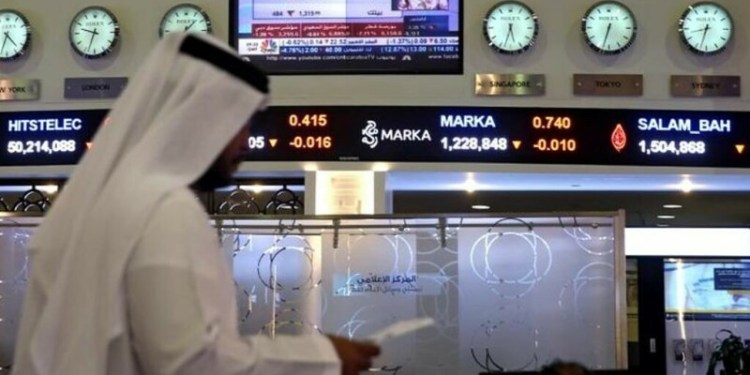Friday, 28 August 2015 17:17
 LONDON: Emerging markets stocks capped a turnaround from a calamitous China-driven start to the week on Friday with a second day of gains, though was not enough to save them from their worst month in three years.
LONDON: Emerging markets stocks capped a turnaround from a calamitous China-driven start to the week on Friday with a second day of gains, though was not enough to save them from their worst month in three years.
Investors were still on the hunt for bargains following the rout in Chinese and other key emerging economies that had sent global markets into panic on Monday.
MSCI’s benchmark EM stocks index was up just over 0.6 percent as a second straight 4-5 percent rebound in Shanghai and Beijing markets helped mask more lacklustre performances in eastern Europe and nudge it towards a 0.8 percent weekly rise.
But it was still down 9 percent for the month, and momentum of the last few days for commodity producers like Russia had faded as oil cooled after its biggest jump since early 2009.
Metals markets were also back in the red, which was expected to put markets like Chile back under pressure later. Nevertheless there was broad relief among EM investors that Monday’s China-led drama and not spiralled out of control.
“It is always an overreaction,” said Marco Ruijer, an emerging market fund manager at NN Investment Partner.
“Sentiment changes because a slight data point is a little bit better than expected as we saw with US GDP, plus the interest rate and reserves cut in China.
“And of course the oil price has shot up to close to $ 43 a barrel and that has helped our (bond) universe for the oil-exporting countries.”
Ukraine’s markets also consolidated massive gains they had seen on Thursday after its government clinched a long-waited restructuring deal on its $ 18 billion debt pile.
Its bond prices had jumped as much as 10 cents, roughly 15 percent, after what was widely seen as a generous deal by Kiev , and its default insurance costs fell to their lowest in 10 months in early trading on Friday.
Currency markets were generally calmer than in recent days although there were some notable outliers.
The Thai baht hit a near 6-1/2-year low as its central bank relaxed rules on overseas investments and said the currency reflects weaker economic fundamentals. (Full Story)
But China’s yuan jumped sharply as its central bank was spotted intervening, the Taiwan dollar and South Korean won both rose to their highest in roughly two weeks, while Russia’s rouble was on track for its first weekly gain since June.



























